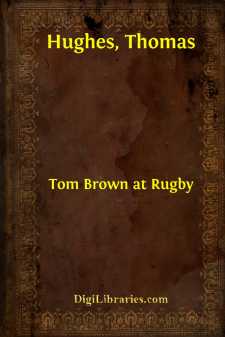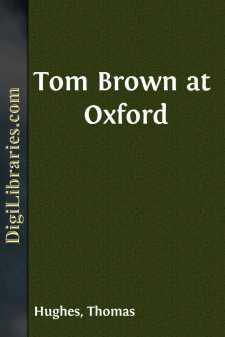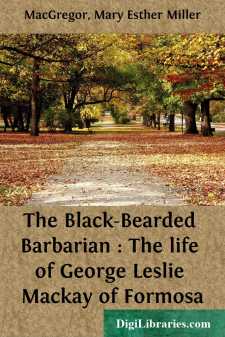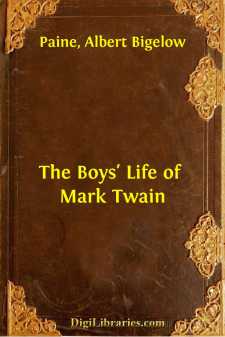Categories
- Antiques & Collectibles 13
- Architecture 36
- Art 48
- Bibles 22
- Biography & Autobiography 813
- Body, Mind & Spirit 138
- Business & Economics 28
- Children's Books 12
- Children's Fiction 9
- Computers 4
- Cooking 94
- Crafts & Hobbies 4
- Drama 346
- Education 46
- Family & Relationships 57
- Fiction 11821
- Games 19
- Gardening 17
- Health & Fitness 34
- History 1377
- House & Home 1
- Humor 147
- Juvenile Fiction 1873
- Juvenile Nonfiction 202
- Language Arts & Disciplines 88
- Law 16
- Literary Collections 686
- Literary Criticism 179
- Mathematics 13
- Medical 41
- Music 40
- Nature 179
- Non-Classifiable 1768
- Performing Arts 7
- Periodicals 1453
- Philosophy 64
- Photography 2
- Poetry 896
- Political Science 203
- Psychology 42
- Reference 154
- Religion 505
- Science 126
- Self-Help 81
- Social Science 81
- Sports & Recreation 34
- Study Aids 3
- Technology & Engineering 59
- Transportation 23
- Travel 463
- True Crime 29
Tom Brown at Rugby
by: Thomas Hughes
Categories:
Description:
Excerpt
THOMAS HUGHES.
Thomas Hughes is a native of the royal county of Berkshire, England. From the nursery windows of the old farmhouse in Uffington, where he was born, in 1823, he delighted in looking out on that famous White Horse Hill which he describes in the opening chapters of "Tom Brown's School Days."
His father was such an English squire as he represents Tom's father to be, and his grandfather was vicar of the parish, and therefore a man of a good deal of local influence. When a child, young Hughes must have become familiar with the old parish church, which dates almost from the time of William the Conqueror, and which has within it some Roman brickwork which carries one back to the days when Agricola's legions were building walled towns in Britain.
Thus the lad's earliest recollections would naturally be of these two landmarks—the ivy-grown church, with its twenty and more generations buried round it, and the great chalk hill whose rudely carved White Horse can be seen gleaming in the sunshine full ten miles away, just as it did when Alfred the Great cut it to commemorate his victory over the Northmen a thousand years ago.
Thomas had a brother George, who was a little older than he, and who was his opposite in many respects. From him he learned many lessons which helped to shape his after life. George was quick to turn his hand to anything, and a lover of all out-door sports; if they had a spice of danger in them, so much the better. Thomas, on the other hand, was naturally both awkward and timid; the sound of a gun frightened him; and a pet pony soon found that, while George was his master, he was Thomas's, and meant to keep so. Thomas was ashamed of what he called his two left hands, with which he never seemed to get the right hold of anything the first time. He was still more ashamed of his timidity. That feeling of fear he could not prevent. Eventually, however, he did better; he so mastered it that he could bravely face what he feared, so making duty stand him in the stead of that mere physical courage, which is often but another name for insensibility to danger.
When he reached the age of seven he went to Twyford to school. Here he found how easy it is to get a nickname, and how hard it is to get rid of it. One of his first lessons related to Greek literature and to the history of Cadmus, who was said to have "first carried letters from Asia to Greece." Instead of asking the question in the book, the master demanded, "What was Cadmus?" This new way of questioning disconcerted the class, who were prepared to tell who Cadmus was, but not what he was. But young Hughes, remembering the letter-carrier at Uffington, suddenly jumped up and shouted out, "I can tell! Cadmus was a postman, sir!" From that day the boy was christened "Cadmus" by his companions, a name which, for convenience' sake, was soon shortened to "Cad,"—a particularly aggravating abbreviation, since in England a "cad" is the exact opposite of a gentleman. Then all sorts of ingenious and mischievous changes were rung on it until poor "Cadmus" was in a fair way of being driven wild with torment....















